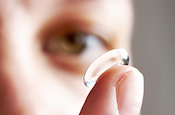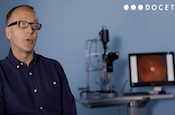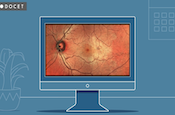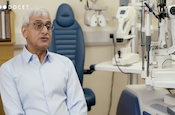Keyword search: 173 records shown
| Course categorySort by Course category Ascending | Course nameSort by Course name Ascending | Course summarySort by Course summary Ascending | New CourseSort by New Course Descending Descending |
|---|---|---|---|
| Expired | Anterior Eye: Eyelid disorders (Non-interactive) | This course expired on 30 September 2025. If you have completed this course, you can print your certificate here. This course has been replaced with our Anterior Eye: Part 1 - Eyelid disorders course, reissued in October 2025. | No |
| Expired | Anterior Eye: Conjunctival disorders (Non-interactive) | This course expired on 30 September 2025. If you have completed this course, you can print your certificate here. This course has been replaced with our Anterior Eye: Part 2 - Conjunctival disorders course, reissued in October 2025. | No |
| Expired | Anterior Eye: Various disorders (Non-interactive) | This course expired on 30 September 2025. If you have completed this course, you can print your certificate here. This course has been replaced with our Anterior Eye: Part 3 - Various disorders course, reissued in October 2025. | No |
| Expired | The Young Eye: Development of Vision, Part 1 - Birth to three years (Non-interactive) | This course expired on 30 April 2025. If you have completed this course, you can print your certificate here.This course has been replaced with our The Young Eye: Development of Vision, Part 1 course, reissued in April 2025. | No |
| Video library | Modern Imaging in Eye Care: Part 1 - Image capture and storage |
Domains: Clinical practice, Leadership & accountability
Part one of this four-part series on modern imaging in practice looks at the nature of digital capture, storage and transfer, how digital images have evolved and the legal ramifications of image capture. Topics: Imaging, Digital photography, Telemedicine, Transfer, Storage, GDPR, Ultrasound, Stereo imaging. | No |
| Video library | Modern Imaging in Eye Care: Part 2 - Digital cameras |
Domains: Clinical practice, Leadership & accountability
The second part of this four-part course discussing modern imaging in practice looks at how to achieve the best images with modern anterior and posterior camera systems and how the images might be further enhanced after capture. Legal issues are also discussed. Topics: Aperture, Resolution, Colour, Slit lamp photography, Delegated function. | No |
| Video library | Modern Imaging in Eye Care: Part 3 - Scanning laser ophthalmoscopy (SLO) |
Domains: Clinical practice, Leadership & accountability
Part three of this four-part series on modern imaging in practice looks looks at how to achieve the best images with scanning laser ophthalmoscopy systems and how the images might be further enhanced after capture. Topics: Scanning laser ophthalmoscopy (SLO), Multicolour, Infra-red, Confocal. | No |
| Video library | Modern Imaging in Eye Care: Part 4 - Optical coherence tomography (OCT) |
Domains: Clinical practice, Leadership & accountability
The final course in this four-part series on modern imaging in practice explores how to achieve the best scans with optical coherence tomography (OCT) systems and how to best interpret the data captured. Topics: Optical coherence tomography, Time domain, Spectral domain, Swept source, Retinal nerve fibre layer, Twin peaks plot, Thickness map, Difference map, Pachymetry, Anterior angle. | No |
| Audio – Ocular disease and management | Sound Optometry: Episode 15 - Vitreomacular Disorders: Smoothing wrinkles and mending holes |
Domains: Clinical practice, Professionalism
In this episode, Michelle Hanratty is joined by Mr Kam Balaggan, consultant vitreoretinal and cataract surgeon, to discuss the presentation and optometric management of vitreomacular disorders encountered in everyday practice. The conversation explores the investigation of epiretinal membranes, vitreomacular traction and macular holes, with key guidance on assessing referral urgency. Topics: Vitreomacular conditions, OCT, Epiretinal membrane, Vitreomacular traction, Macula holes, Referrals. | No |
| Expired | Binocular Vision: Beyond the prism (November 2021 Webinar) | This course expired on 30 September 2025. If you have completed this course, you can print your certificate here. This course has been replaced with our Binocular Vision: Beyond the prism course, reissued in October 2025. | No |
| Audio – Clinical assessment | Sound Optometry: Episode 16 - Binocular Vision: Managing convergence anomalies |
No CPD Points Domains: Clinical practice, Professionalism
In this episode, Michelle Hanratty speaks with Dr Aleksandra Mankowska about key examination techniques for investigating binocular vision anomalies. Together, they explore the management of convergence insufficiency and delve into the challenging topic of prescribing prisms and orthoptic exercises. Topics: Paediatric, Convergence insufficiency, Convergence excess, Esophoria, Exophoria, Prism, Cycloplegic refraction. | No |
| Audio – Professional matters | Sound Optometry: Episode 17 - Enhanced Optometric Services Part 1 (Wales & England) |
No CPD Points Domains: Clinical Practice, Professionalism, Specialty CPD (IP)
In this episode, the first of a two-part series, Michelle Hanratty discusses Enhanced Optometry Services in Wales and England. She explores the scope of the Wales Eye Care Service (WECS) with Clare Pearce and talks about the COVID Urgent Eye Care Service (CUES) with Kevin Liu. Topics: Minor Eye Conditions, Urgent Eye Care Services, Independent prescribing, Enhanced Optometry Services, Eye Health Examination Wales, Primary eye care services. | No |
| Video library | The CLEAR way to maximise success with contact lenses (March 2022 Webinar) |  No CPD Points Domains: Communication, Clinical practice
This recorded webinar with Mr Neil Retallic presents key findings from recent contact lens research published in the BCLA Contact Lens Evidence Based Academic Reports (CLEAR) and discusses how it can help shape contact lens practice. The presentation provides clinical pearls on how to best relate to contact lens wearer’s individual needs and take a patient centric evidence-based approach, to maximise success with contact lens wear. Topics: Soft, RGP multifocal, Presbyopia, Fitting, Aftercare, Evidence-based, CLD, Complications, BCLA, Toric. | No |
| Expired | Contact Lenses: Fitting Children, Part 1 - Considerations for the optometrist, child and family (Non-interactive) | This course expired on 31 December 2025. If you have completed this course, you can print your certificate here. This course has been replaced with our Contact Lenses: Fitting Children, Part 1 course, reissued in January 2026. | No |
| Audio – Professional matters | Sound Optometry: Episode 18 - Enhanced Optometric Services Part 2 (Scotland and Northern Ireland) |
No CPD Points Domains: Clinical Practice, Professionalism, Specialty CPD (IP)
In this episode, the second of a two-part series, Michelle Hanratty discusses Enhanced Optometry Services in Scotland and Northern Ireland. Topics: Eye care services in primary care settings, Urgent eye care services, Independent prescribing, Enhanced optometry services, Community Eyecare Scotland, NI PEARS. | No |
| Audio – Clinical assessment | Sound Optometry: Episode 19 - Modern contact lens practice: The CLEAR way forward |
No CPD Points Domains: Clinical Practice, Communication
In this episode, Michelle Hanratty discusses the highlights of the BCLA Continued Learning Evidence-based Academic Report (CLEAR) with Professor James Wolffsohn and Neil Retallic. Topics: Contact lenses, Evidence-based practice, Fitting, Presbyopia, Multifocal, Toric, CLEAR, BCLA. | No |
| Audio – Ocular disease and management | Sound Optometry: Episode 20 - Sudden loss of vision: Time is sight! |
No CPD Points Domains: Clinical Practice, Professionalism
In this episode, Michelle Hanratty discusses sudden loss of vision with hospital optometrists Helen Wilson and Amanda Harding, including the presentation and optometric management of retinal vascular occlusions, differential diagnosis, appropriate triage and referrals. The episode concludes with the clinical signs optometrists need to look out for when examining a patient with a history of a vascular occlusion. Topics: Sudden loss of vision, Retinal artery occlusion, Retail vein occlusion, Giant Cell Arteritis, Arteritic ischaemic optic neuropathy, Amaurosis Fugax, Stroke. | No |
| Audio – Ocular disease and management | Sound Optometry: Episode 21 - Uveitis: Detecting the rare and managing the obvious |
Domains: Clinical Practice, Communication
In this episode, Michelle Hanratty discusses the presentation and optometric management of both posterior and anterior uveitis with Professor Alastair Denniston and his colleague Dr Balini Balasubramaniam. Topics: Painful red eye, Ocular inflammation, Anterior uveitis, Posterior uveitis, Iritis, Punctate inner choroidopathy, Secondary glaucoma, Secondary cataract. | No |
| Audio – Ocular disease and management | Sound Optometry: Episode 22 - Corneal Disease: Big problems in young eyes |
Domains: Clinical Practice, Communication, Specialty CPD (IP)
In this episode, Michelle Hanratty discusses corneal and ocular surface disease in children, including vernal keratoconjunctivitis and blepharokeratoconjunctivitis, with Mr Michael O’Gallagher. Topics: Red eye, Ocular inflammation, Blepharitis, Conjunctivitis, Keratitis, Ocular allergy, Paediatric corneal disease, Independent prescribing. | No |
| Video library | Common Eyelid Lesions (September 2022 Webinar) |  No CPD Points Domains: Clinical practice
This recorded webinar, hosted by Consultant Ophthalmic Surgeon Raman Malhotra, will help optometrists to identify and manage commonly occurring suspicious eyelid conditions. It will cover both benign and malignant eyelid lesions as well as discuss the features, diagnosis, management and referral of the conditions by community optometrists. At the end of the webinar, Mr Malhotra answers questions raised during the lecture. Topics: Lids, Malignant, Benign, BCC, Carcinoma, Oncology, Meibomian, Tumour, Squamous cell, Melanoma, Chalazion, Molluscum, Naevus, Papilloma, Xanthelasma. | No |
| Audio – Ocular disease and management | Sound Optometry: Episode 23 - Eyelid Lesions: Look for the sign, malignant or benign? |
Domains: Clinical Practice, Professionalism, Specialty CPD (IP)
In this episode, Michelle Hanratty discusses the presentation, differential diagnosis and management of malignant and benign eyelid lesions with Mr Raman Malhotra, consultant ophthalmic surgeon and expert in oculoplastics. Topics: Eyelid lesions, Eyelid carcinomas, Chalazion, Molluscum contagiosum, Xanthelasma, Independent prescribing, Cancer, Referrals. | No |
| Expired | The Young Eye: Assessment of Vision, Part 1 - Birth to 12 months (Non-interactive) | This course expired on 31 December 2025. If you have completed this course, you can print your certificate here. This course has been replaced with our The Young Eye: Assessment of Vision, Part 1 - Birth to three years course, issued in January 2026. | No |
| Expired | The Young Eye: Assessment of Vision, Part 3 - Primary and secondary school-age children (Non-interactive) | This course expired on 31 December 2025. If you have completed this course, you can print your certificate here. This course has been replaced with our The Young Eye: Assessment of Vision, Part 2 - Pre-school to secondary school-age children course, issued in January 2026. | No |
| Expired | The Young Eye: Assessment of Vision, Part 2 - Twelve months to five years (Interactive) | This course expired on 1 December 2025. If you have completed this course, you can print your certificate here. This course has been replaced with our The Young Eye: Assessment of Vision, Part 1 - Birth to three years and The Young Eye: Assessment of Vision, Part 2 - Pre-school to secondary school-age children courses, issued in January 2026. | No |
| Audio – Professional matters | Sound Optometry: Episode 24 - Mental Health: Optometrists, be well! |
Domains: Professionalism, Communication
In this episode, Michelle Hanratty focuses on the mental health and wellbeing of optometrists in the workplace environment with optometrist and life coach Sheena Tanna-Shah. Also discussed are the potential triggers of stress and anxiety in a healthcare environment with Dr Rachel Morris, executive coach and former GP. Topics: Mental Health, Wellbeing, Anxiety, Stress, Time management, Practice teambuilding, Communication, Leadership. | No |
| Video library | Interpretation of Visual Fields: What to do when it is not glaucoma (November 2022 Webinar) |  No CPD Points Domains: Clinical practice
In this recorded lecture, Dr Lindsay Rountree explores non-glaucomatous visual fields, covering the choice of test, interpretation of field plots, and appropriate referral. At the end of the lecture, Dr Rountree answers questions raised during her talk. Topics: Neurological, Threshold, Visual pathway, Hemianopia, Quadranopia, Pituitary, Tumour, Stroke. | No |
| Audio – Clinical assessment | Sound Optometry: Episode 25 - Visual Field Tests: When, why and what it can mean |
Domains: Clinical Practice
In this episode Michelle Hanratty first talks to optometrist Stephen Freeman about the clinical decision making process of when to conduct a visual field test. This is followed by a discussion with Dr Lindsay Rountree about visual field testing including how to best achieve reliable test results and how to interpret them; how to relate visual field loss to the location in the visual pathway and likely causes. The episode concludes with advice on referral, and the importance of communicating the impact of visual field loss to a patient’s driving status. Topics: Visual Fields, Perimetry, Visual pathway, Stroke, Brain tumours, Neurological disease, Driving standards, Referrals. | No |
| Audio – Clinical assessment | Sound Optometry: Episode 26 - Patient mental health: Eyes and minds |
Domains: Clinical Practice, Communication
In this episode Michelle Hanratty asks optometrist Sarah Farrant and her patient Christine Lanaghan who suffers from dry eye disease how to talk about mental health in practice. Michelle then investigates the relationship between mental health and ocular health with Dr Dennis Pardo, an optometrist and psychotherapist in Massachusetts. Topics: Mental Health, Well-being, Anxiety, Stress, Communication, Side-effects of systemic drugs, Dry eye. | No |
| Audio – Ocular disease and management | Sound Optometry: Episode 27 - Dry eye? Think MGD and beyond |
Domains: Clinical Practice, Professionalism, Specialty CPD (IP)
In this episode we hear from David about his journey with dry eye disease, its effect on his career and his mental health, and how his optometrist and specialist dry eye practitioner Sarah Farrant managed it. Professor Sai Kolli from the Queen Elizabeth Hospital in Birmingham then joins Michelle Hanratty to explain how optometrists in the community can help prevent patients from getting to the stages of severe dry eye disease. Topics: Mental health, Well-being, Communication, Side effects, Systemic drugs, Dry eye, Meibomian gland dysfunction, Ocular surface inflammation, Independent prescribing. | No |
| Video library | Leadership: Are all optometrists clinical leaders? (March 2023 Webinar) |  No CPD Points Domains: Leadership and accountability
In this recorded lecture, an expert panel lead by Philippa Shaw explores the leadership role that all optometrists need to take in community practice and how they may influence colleagues in their team. The panel discusses common situations that occur in everyday practice, as well as optometrists’ responsibilities. Topics: Referrals, Multi-disciplinary, Governance, Records, Delegated tasks, Pre-screening, Audit, Supervision. | No |
| Audio – Professional matters | Sound Optometry: Episode 28 - Leadership and accountability in optometry: Essential not optional |
Domains: Leadership and accountability
In this episode, a follow-up to the Docet webinar, Are all optometrists clinical leaders?, Michelle Hanratty discusses the concepts of leadership with Mat Pickering, General Manager of Optegra UK. Brian McCotter joins in to signpost resources that are available to help optometrists ensure that they are meeting requirements for supervision, record keeping and clinical governance. Topics: Leadership, Accountability, Supervision, GOC standards of practice, Clinical governance, Audit. | No |
| Expired | Glaucoma - The optic disc challenge (June 2023 Webinar) | This course expired on 31 December 2025. If you have completed this course, you can print your certificate here. This course has been replaced with our Glaucoma - The optic disc challenge course, reissued in January 2026. | No |
| Audio – Ocular disease and management | Sound Optometry: Episode 29 - Hydroxychloroquine: Potentially toxic, potentially blinding |
Domains: Clinical practice, Professionalism
In this episode, Janice McCrudden talks to host Michelle Hanratty about the stark reality of hydroxychloroquine retinopathy when it is discovered too late. We hear about the patient and optometrist experience of a pilot monitoring scheme in Wales, before Michelle explores the toxicity effects of hydroxychloroquine with Consultant Ophthalmologist Rhianon Reynolds. Topics: Medical retina, Hydroxychloroquine toxicity, Retinopathy, Maculopathy, Referrals, Monitoring pathways, Autoimmune disease. | No |
| Audio – Ocular disease and management | Sound Optometry: Episode 30 - Glaucoma: ISNT it suspicious? |
Domains: Clinical practice, Communication
In this episode we first hear a patient case study; later, Patrick Gunn reflects on how his professional development and training has led to a specialist qualification in glaucoma. The second part of the podcast answers some of the questions asked by the glaucoma webinar attendees and delves into optic disc interpretation in detail. Presenter Michelle Hanratty and Patrick discuss the early signs to look out for in glaucomatous discs and how these relate to other findings such as OCT and visual fields. Topics: Glaucoma, Referrals, Intraocular pressure, Monitoring pathways, Optic disc, OCT, Visual fields. | No |
| Audio – Ocular disease and management | Sound Optometry: Episode 31 - Diabetic retinopathy screening and treatment |
No CPD Points Domains: Clinical practice
In this episode, we hear about England’s diabetic retinopathy screening programme, with a 'fly on the wall' recording of a screening appointment within the NHS. Dr Cathy Egan explains how AI systems work and reveals how the potential of AI will improve services to the public and increase research capability. We then hear from consultant ophthalmologist Sajjad Mahmood about current treatments for patients at risk of vision loss. Topics: Glaucoma, Referrals, Intraocular pressure, Monitoring pathways, Optic disc, OCT, Visual fields. | No |
| Audio – Clinical assessment | Sound Optometry: Episode 32 - Managing myopia: Now and for the future |
Domains: Clinical practice, Communication
In this episode, Michelle speaks with a highly myopic patient as well as a parent of highly myopic children about myopia’s impact on lifestyle and ocular health, and their hopes and fears for the future. We also hear from Kathryn Webber about recent myopia management research, advancements and guidance. Topics: Myopia management, High myopia, Risk factors for myopia, Communication, Pathological myopia. | No |
| Audio – Ocular disease and management | Sound Optometry: Episode 33 - Cataract surgery: Understanding risks and managing complications |
Domains: Clinical practice, Communication
In this episode, Michelle speaks with Dr David Lockington about how to get the balance right when explaining the risks and benefits of cataract surgery to patients. The consent process is explored in depth and David shares a surgeon’s insight into the risks that make a cataract surgery more complex, but not necessarily complicated. The second part of the podcast concentrates on postoperative complications and the importance of setting patient expectations prior to surgery. Topics: Cataract surgery, Consent, Cataract complications, Intraocular lenses, Patient care pathways, Communication. | No |
| Audio – Ocular disease and management | Sound Optometry: Episode 34 - YAG and SLT: Optometrist-delivered laser treatments |
Domains: Clinical practice, Communication
This episode provides a fly on the wall account of a typical YAG laser procedure. Michelle speaks with specialist optometrists Steven Burge and Don Williams, who reflect on their experiences of the training they underwent to be able to perform key ophthalmic laser techniques before moving on to discuss how they have honed their techniques with experience. Topics: Cataract postoperative complications, Posterior capsular opacification, Consent, YAG capsulotomy, Patient care pathways, Glaucoma, Ocular hypertension, Selective laser trabeculoplasty (SLT), Ophthalmic lasers, Glaucoma treatment, NICE. | No |
| CPD courses | Contact Lenses: Fitting Children, Part 2 - How to make the process a success (Non-interactive) |
CPD Ref: C-107674 CPD Points: CPD Type: Non-interactive Closing Date: 31 March 2026Domains: Clinical practice, Professionalism
In the second part of this two-part course, our experts discuss what you need to consider before fitting a child with contact lenses. They also give helpful advice on how to educate children and their parents about contact lenses and discuss the legal aspects to bear in mind when fitting contact lenses to younger patients. Topics: Contact lens compliance, Microbial keratitis, Communicating with children, Management of contact lens wear risks, Contact lens teach appointment, Legal considerations of fitting children with contact lenses. | No |
| Audio – Ocular disease and management | Sound Optometry: Episode 35 - AMD: Hope on the horizon |
Domains: Clinical practice, Communication
In this episode, Michelle meets with optometrist Bradley Warwick and one of his patients with geographic atrophy, and they discuss the benefit to patients that regular monitoring can provide. We also hear from consultant ophthalmologist Clare Bailey about the exciting developments in the therapeutic treatment of dry AMD. Topics: Age related macular degeneration, Geographic atrophy, Medical retina, Ocular coherent tomography (OCT), Fundus auto-fluorescence, Nutritional supplements, Patient communication, NICE. | No |
 No CPD Points
No CPD Points No CPD Points
No CPD Points No CPD Points
No CPD Points No CPD Points
No CPD Points